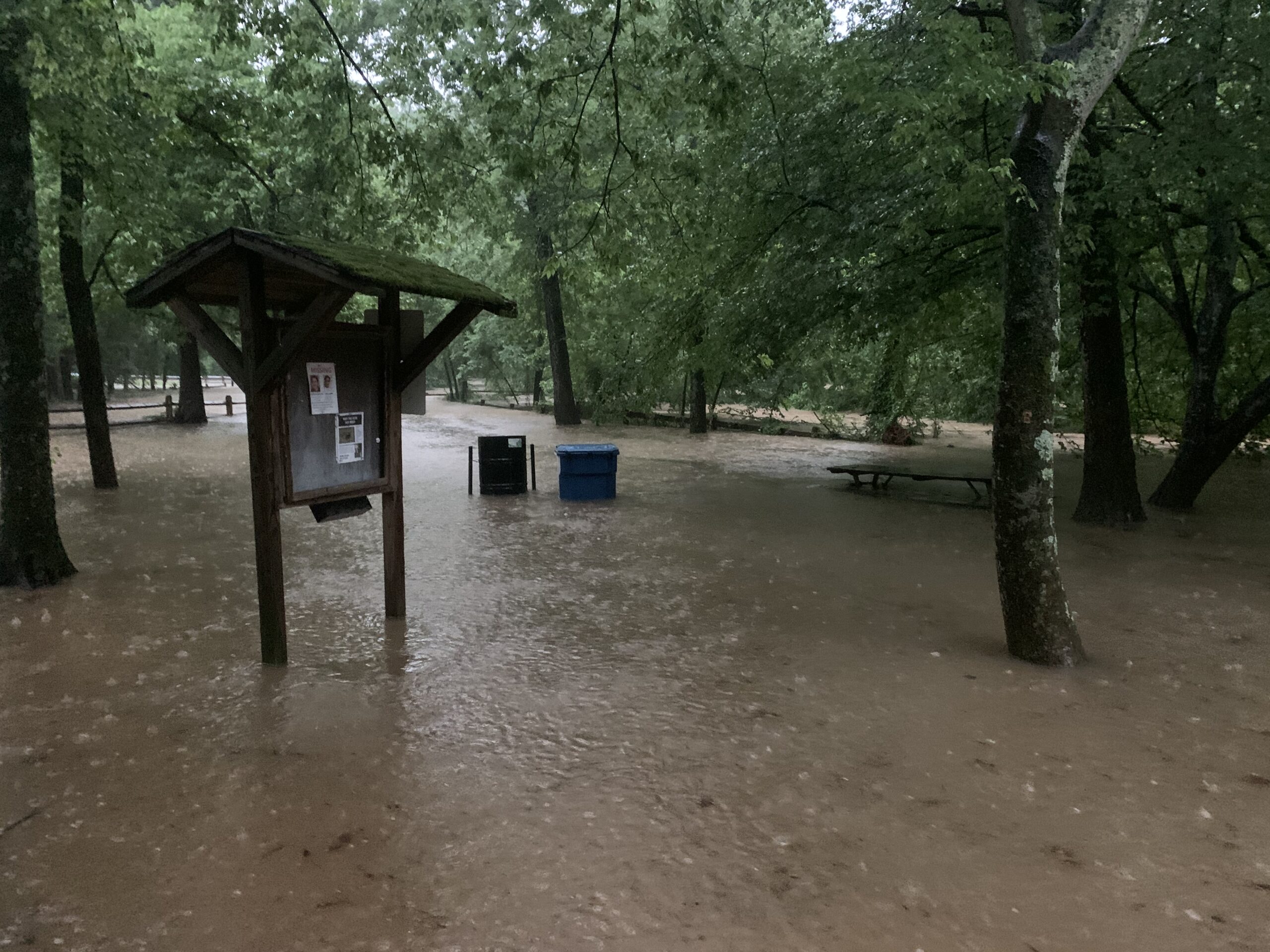The science is clear: Our planet is facing the undeniable crisis of rapid, human-caused climate change. We have years, not decades, to address this existential threat. People, animals, and plants are already feeling the heat. Globally, we see the impacts of climate change — from intensifying storms, droughts, and heat waves to rising sea levels and loss of native species.

Here at the Eno River Association, we are focused on solutions. We believe our work will help protect our region from the cascading effects of climate change in the years to come, and you are an important part of that collective effort.
Climate change threatens the river and its surrounding communities. Many neighborhoods along the Eno already experience flooding, and this will worsen as global temperatures continue to rise. More flooding means more pollutants entering our river. This will harm the native flora and fauna that rely on the Eno for their survival, and puts healthy drinking water at risk. Rising temperatures enable invasive species to spread, which endangers native plants and animals.
Reversing the course on climate change isn’t just about protecting the environment, because the impacts of climate change are complex and interconnected. Environmental problems lead to economic challenges such as supply chain interruptions, property damage, and job loss. An increase in storm-related injuries, cases of heat stroke, and diseases affect public health. Historic injustices have led to marginalized communities and people of color bearing the brunt of these effects, and they are often denied the resources they need to recover.
We must address these threats head-on to reduce the effects of climate change. The Eno River Association is working every day to build a more climate-resilient community. We are deeply invested in and committed to the following:
- Increasing carbon sequestration by preserving forested land
- Reducing flooding impacts and improving water quality by conserving riparian buffers and other lands that naturally absorb, clean, and hold water
- Connecting protected lands to ensure species survival, allow for wildlife migration corridors, and reduce habitat fragmentation
- Providing safe havens for plants and animals by identifying and conserving lands to improve climate resilience
- Educating our community about the importance of freshwater resources
- Advocating against development that will exacerbate climate change in our region
- Committing to support the communities and people that are most affected by climate change
Our work helps our land, wildlife, and neighbors adapt to an ever-changing climate. But we can’t do it alone. Our partners across the state and nation are also working to mitigate climate change and foster resiliency in our communities. We look to our neighbors – and our next generation of climate activists – to learn, advocate, and take action with us.
Share your feedback in our short five question climate change survey.
For Further Reading:



